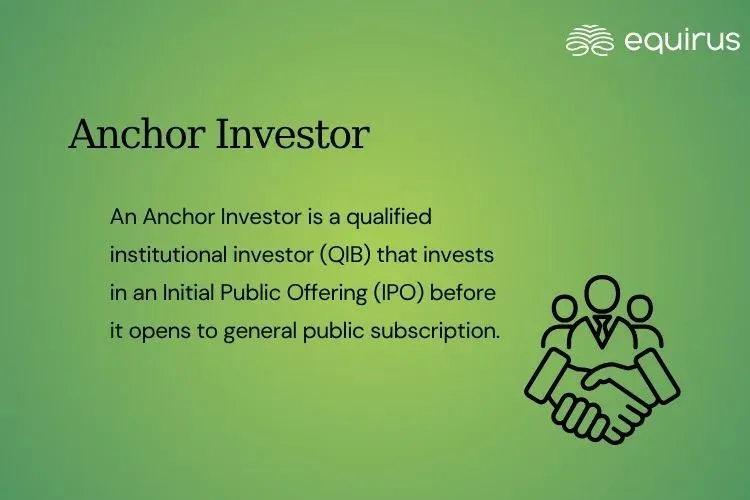Anchor Investor

Key Highlights
-
An Anchor Investor is a qualified institutional investor (QIB) that invests in an Initial Public Offering (IPO) before it opens to general public subscription.
-
Their role is to add credibility and invite other investors by backing the issue at the start.
What is Anchor Investor?
An Anchor Investor is a qualified institutional investor (QIB) that invests in an Initial Public Offering (IPO) before it opens to general public subscription. Their role is to add credibility and invite other investors by backing the issue at the start.
Key Features
- Anchor Investors are allotted shares one day ahead of the IPO opening for public subscription.
- Their investment is restricted to 60% of the institutional size.
- They must keep their shares locked in for 30 days from the allotment date.
- SEBI (Securities and Exchange Board of India) regulates and monitors the anchor investor participation for ensuring transparency and fairness.
Eligibility Criteria
Anchor investors must be solely Qualified Institutional Buyers (QIBs) such as mutual funds, insurance companies, banks, foreign portfolio investors, and pension funds, and not High Net Worth Individuals (HNIs) or retail investors.
Purpose and Significance
Having anchor investors builds trust in an IPO by demonstrating that astute, capable investors see value in the offering. It also facilitates price discovery and is upbeat towards the IPO.
Example
Suppose the Company ABC is coming out with an IPO. One of the most well-known mutual funds invests ₹50 crore in the form of an anchor investor. This move generally attracts retail as well as institutional investors who see the IPO as a risk-free option.
Indian Context
In India, SEBI brought out anchor investor guidelines in 2009 to raise investor confidence in the IPO process. Over time, the role of anchor investors has become significant in ensuring successful IPO subscriptions, especially in large or high-profile issues.
